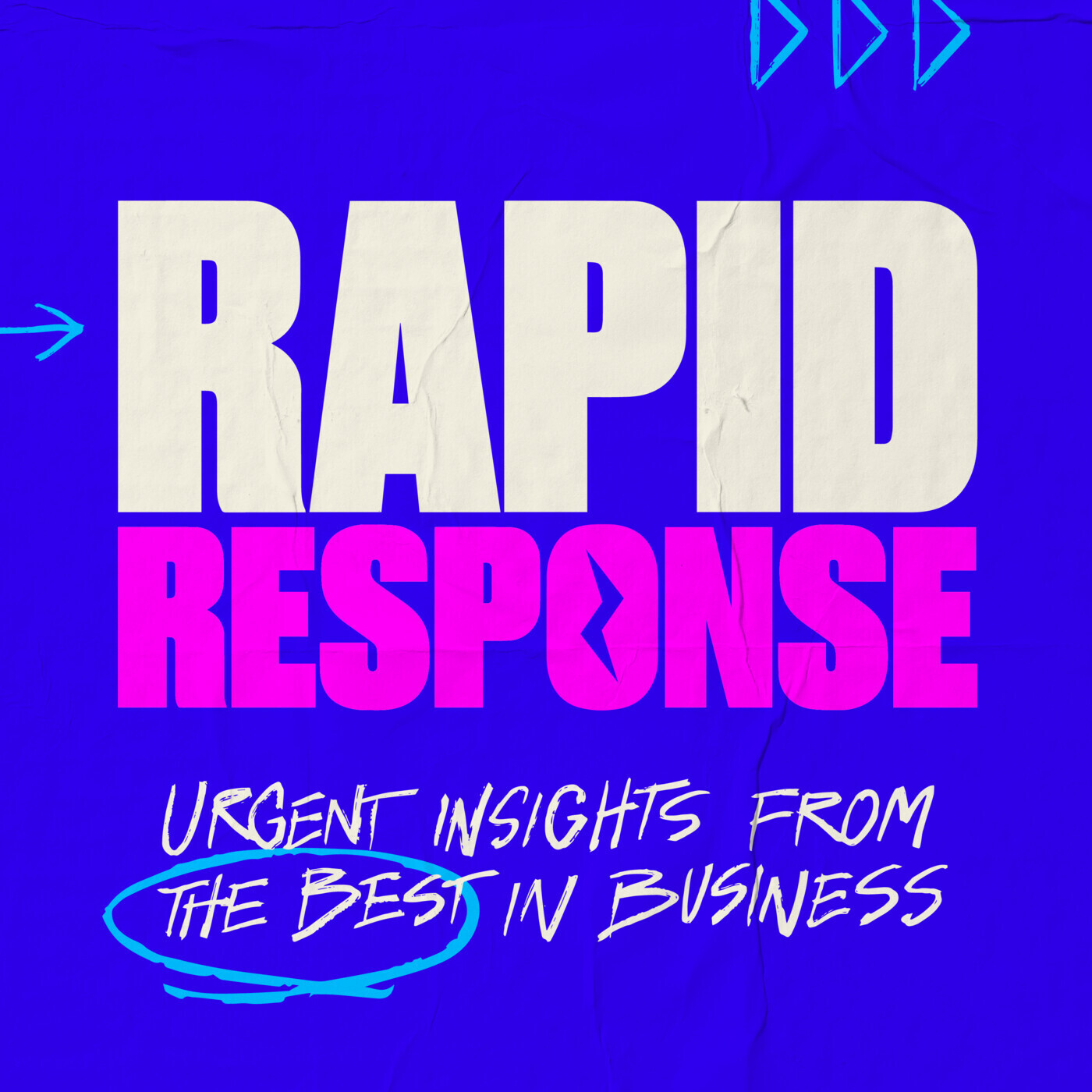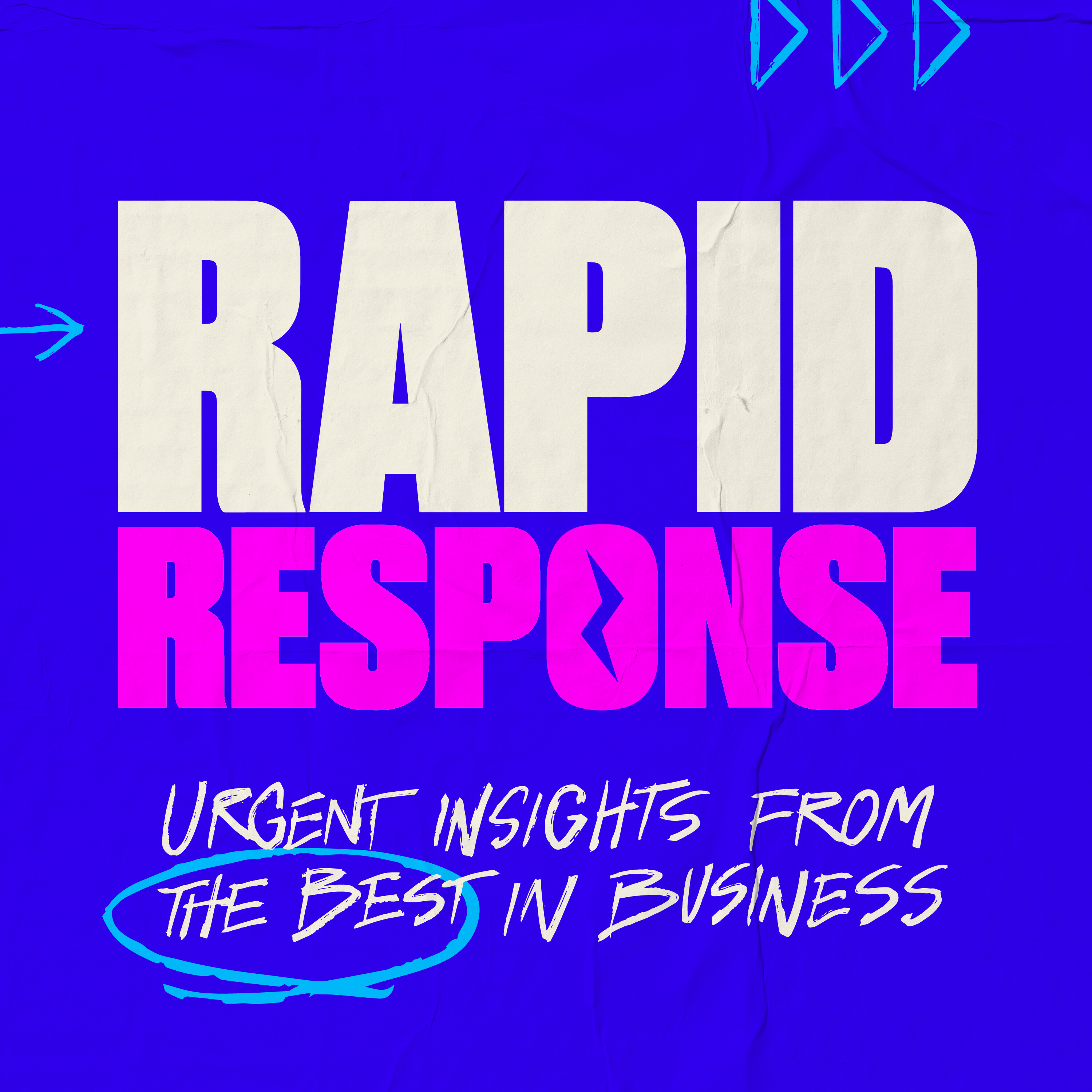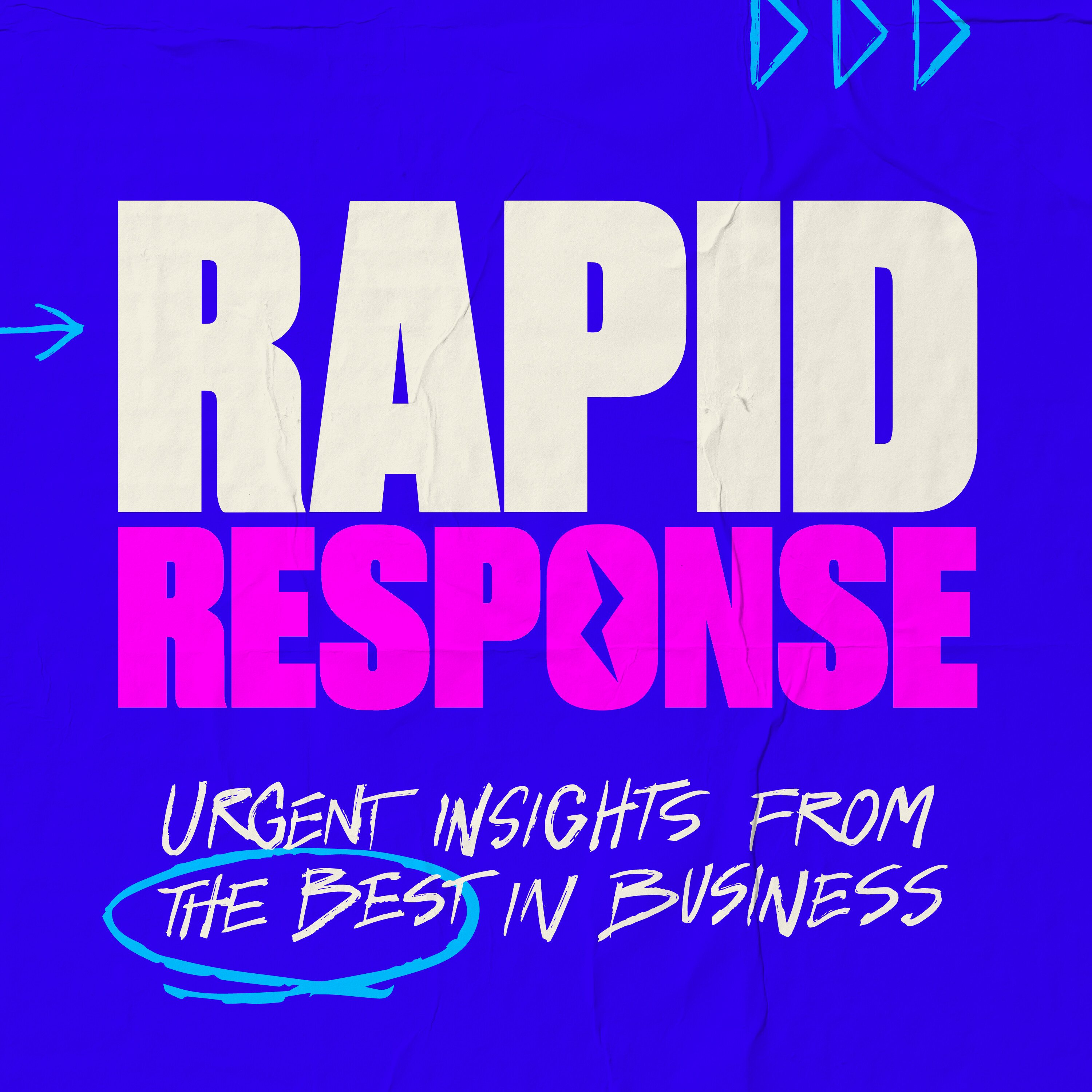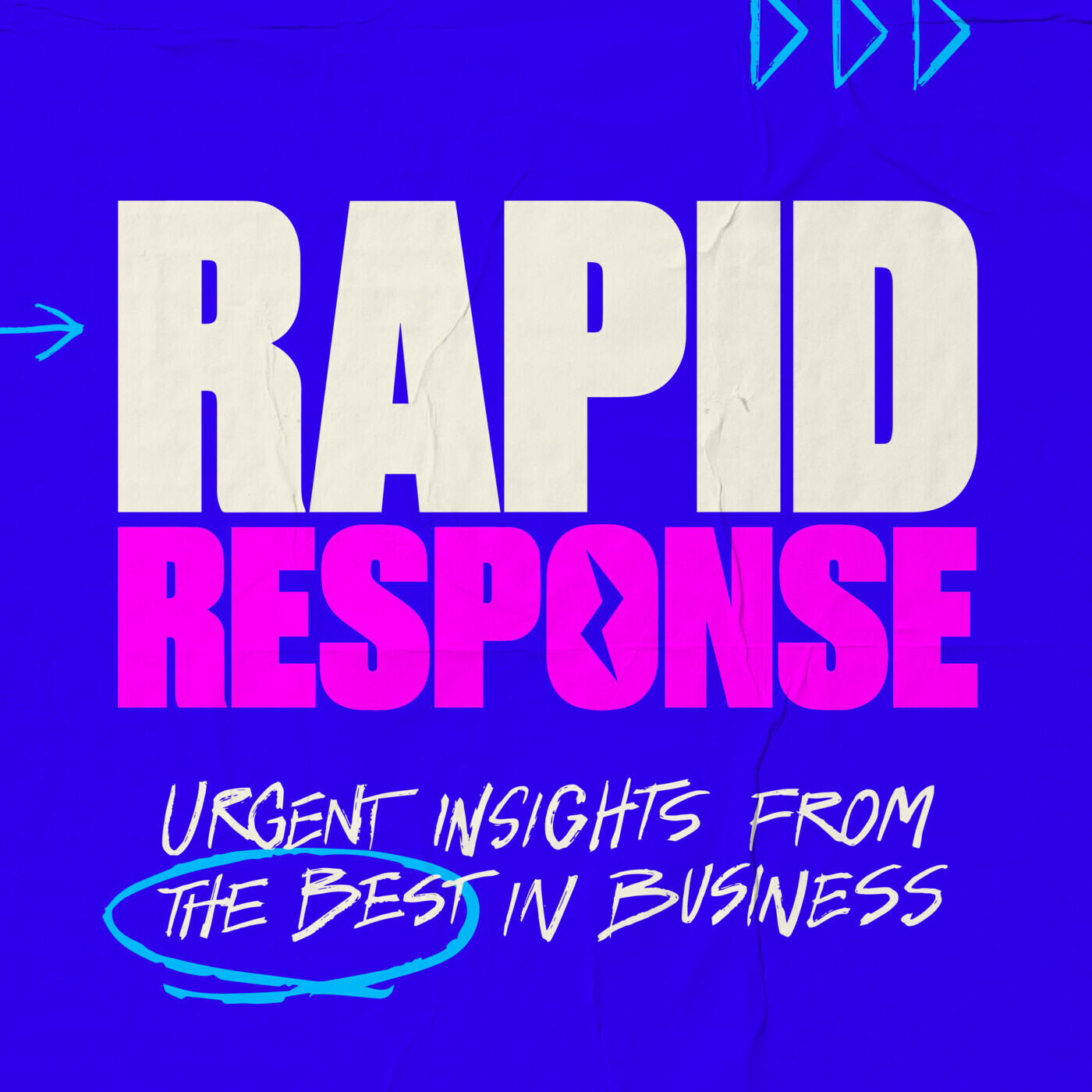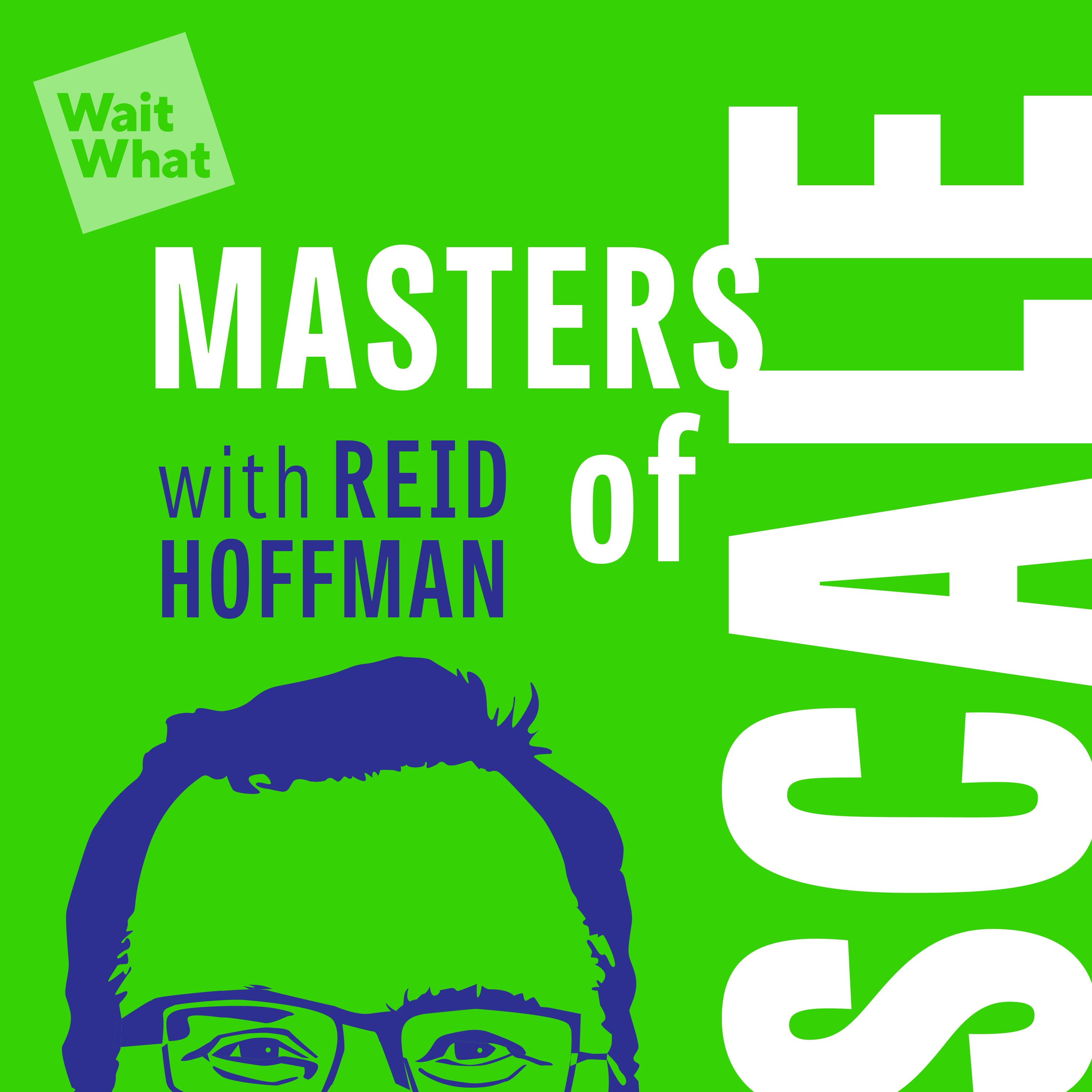
May 16, 2024 • 33min
Grit-scaling with Angela Duckworth
Masters of Scale

Key Takeaways
- Take your own curiosity seriously - Angela Duckworth pivoted multiple times in her career by following her interests and passions, even when it meant going against expectations
- Grit = passion + perseverance - Through studying high achievers, Duckworth identified grit as a key trait, combining long-term passion and stamina
- Simplify complex ideas - Duckworth aims to distill academic research into accessible wisdom that can help people, inspired by William James' "Talks to Teachers"
- Grit is not enough - While important, grit alone is insufficient; you also need to cultivate supportive situations and relationships
- Build a community - High achievers benefit from being part of formal communities and actively cultivating mentor relationships
- Embrace pivots - Duckworth's non-linear career path allowed her to combine her interests in science, education, and communication in unique ways
Introduction
Angela Duckworth is a professor of psychology at the University of Pennsylvania, bestselling author, and creator of one of the most watched TED talks of all time. Her research and writing on grit - the combination of passion and perseverance - has profoundly impacted how we think about achievement and success. In this Masters of Scale episode, Duckworth discusses her unlikely path to becoming a public intellectual and scaling the impact of her work. She shares insights on cultivating grit, the limits of grit alone, and her upcoming book on making situations work for you.
Topics Discussed
Early Career Pivots (05:01)
Duckworth describes her journey from pre-med student to education non-profit founder to management consultant to teacher. Key points:
- As a Harvard undergrad, she discovered a passion for working with kids and pivoted away from pre-med, despite her father's disapproval
- Started a tutoring non-profit in Cambridge that is still running 30 years later
- Briefly worked at McKinsey but left after 11 months to teach in New York City public schools
- Found teaching 7th grade math incredibly challenging: "I thought figuring out what to do with your $7 billion of excess cash revenue was a problem. Like, this is hard, right? What do I do with this kid who is sitting in front of me and has umpteen problems, and I have 45 minutes to change their life per day?"
Transition to Psychology Research (16:08)
After realizing classroom teaching wasn't the right fit long-term, Duckworth pivoted again to psychology research:
- Decided to pursue a PhD in psychology at age 32 to study how to help kids reach their potential
- Focused on unpacking what enables children to be brilliant and what holds them back
- This led to her research on grit in high achievers across fields
Developing the Concept of Grit (19:04)
Duckworth explains how she identified grit as a key trait of high achievers:
- Interviewed top performers across fields like Nobel laureates, Olympic athletes, etc.
- Looked for common denominators rather than differences
- Found they shared a combination of passion and perseverance
- Key insight: It wasn't just intensity, but stamina in both passion and perseverance that set them apart
Becoming a Public Intellectual (20:57)
Duckworth describes her accidental path to becoming a public figure:
- Started being asked for media interviews even as a graduate student
- Gave a TED talk that went viral, leading to widespread interest
- Published bestselling book Grit in 2016
- Realized she loved using words to communicate ideas, combining her scientific and communication skills
Simplifying Complex Ideas (24:32)
Duckworth discusses her approach to translating academic research for a general audience:
- Aims to explain complex concepts in accessible ways, like teaching algebra to 7th graders
- Acknowledges criticism from some academics who feel this oversimplifies
- Inspired by William James' "Talks to Teachers" which distilled key psychological principles for educators
- "I think it's honorable work. I think a lot of my academic friends think it's tawdry and possibly worse than tawdry, you know, dangerous. You know, like, they don't like the kind of TED talk."
Beyond Grit: The Power of Situation (27:19)
Duckworth previews her upcoming book "Easier: A Better Way to Be Your Best":
- Key message: "Grit is not enough. You must have your situation as your ally."
- Draws on personal experience of burnout trying to rely solely on grit
- Emphasizes importance of supportive environments, relationships, and systems
- Argues psychologists have long known the power of situation, but it's not widely appreciated
Advice for Founders and Leaders (30:21)
Duckworth offers two key pieces of advice:
- Join a formal community of peers
- Provides solidarity, accountability, and peer learning
- "You want to be in a flotilla, not like off sailing on your own."
- Proactively cultivate mentor relationships
- Don't wait for mentors to appear - actively seek them out
- Build and nurture these relationships over time
She challenges the myth of the lone entrepreneur, emphasizing that even solo endeavors require a team:
"It looks like a solitary sport, but it takes a team." - Diana Nyad, after swimming from Cuba to FloridaConclusion
Angela Duckworth's journey exemplifies the power of following one's curiosity and embracing pivots. Her research on grit has had a profound impact on our understanding of achievement, but she continues to evolve her thinking. In her next chapter, Duckworth is exploring a more nuanced approach to success that balances individual effort with supportive environments and relationships. Her ability to translate complex research into actionable wisdom makes her insights valuable for anyone striving to reach their full potential, from educators to entrepreneurs.

